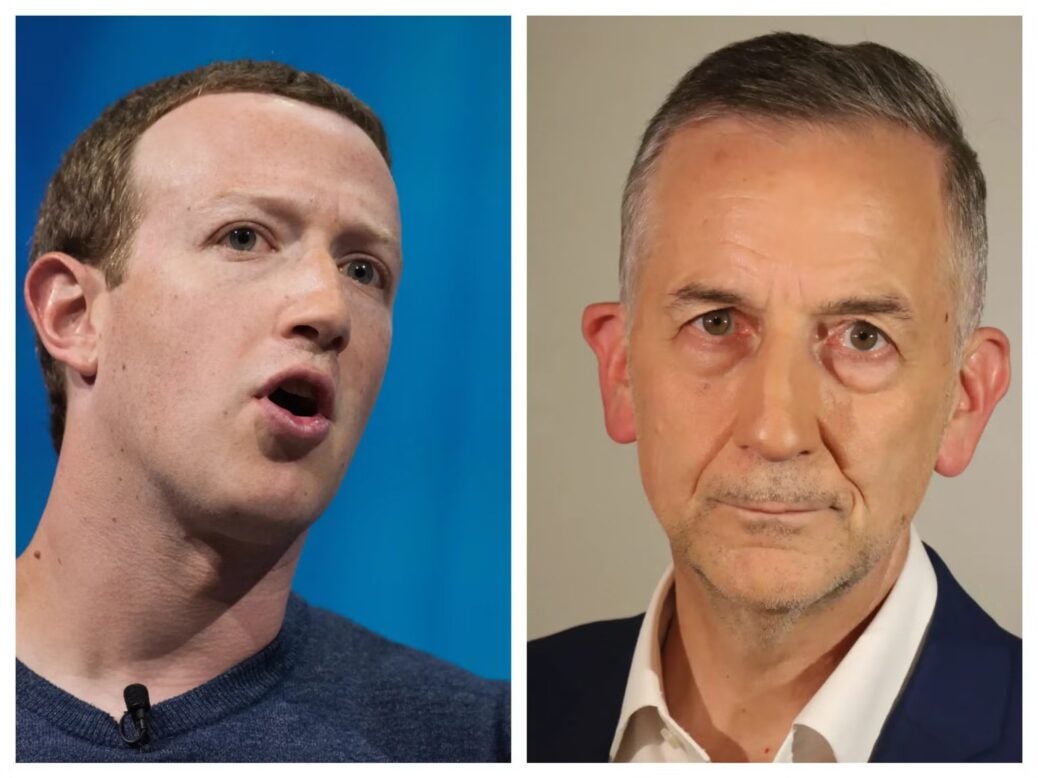
The chief executive of Meta partner Full Fact has called the tech giant’s decision to end its fact-checking programme in the US “a backwards step that risks a chilling effect around the world”.
Meta, the parent company of Facebook, Instagram, Threads and Whatsapp, announced on Tuesday that its current system of fact-checking — in which claims flagged by users around the world are sent to local third-party organisations for assessment — will be replaced by a community notes system similar to the one brought in by Elon Musk on X (formerly Twitter).
Full Fact, a fact-checking charity funded largely by donors, has been part of Meta’s third-party fact-checking programme since 2019. It received £373,510 from the social media company for fact-checking services in 2023, the largest sum it was given by any single financial contributor after Google (which gave £522,632).
Meta said it will make its fact-checking changes first in the US and has told publications including Politico and the BBC that it has no plans to implement them in the EU. Full Fact has been notified of the changes by Meta and told the US changes are not presently being rolled out internationally.
In a statement to Press Gazette, Full Fact chief executive Chris Morris said: “Meta’s decision to end its partnership with fact checkers in the US is disappointing and a backwards step that risks a chilling effect around the world.
“From safeguarding elections to protecting public health to dissipating potential unrest on the streets, fact checkers are first responders in the information environment.
“Our specialists are trained to work in a way that promotes credible evidence and prioritises tackling harmful information – we believe the public has a right to access our expertise.”
Responding to a claim by Meta chief executive Mark Zuckerberg that “fact-checkers have just been too politically biased and have destroyed more trust than they’ve created”, Morris said: “We absolutely refute Meta’s charge of bias – we are strictly impartial, fact check claims from all political stripes with equal rigour, and hold those in power to account through our commitment to truth.
“Like Meta, fact checkers are committed to promoting free speech based on good information without resorting to censorship. But locking fact checkers out of the conversation won’t help society to turn the tide on rapidly rising misinformation.
“Misinformation doesn’t respect borders, so European fact checkers will be closely examining this development to understand what it means for our shared information environment.”
Meta provides millions of pounds to fact-checking organisations, and by extension the journalists they employ, every year.
In the UK, the other fact-checking organisations contributing to Meta’s scheme are FactcheckNI, Logically Facts and Reuters Fact Check, while their US counterparts include Politifact, AFP – Hub, USA Today and The Dispatch. The tech giant lists 117 other countries in which it has fact-checking partners.
Meta pays partners in proportion to the number of fact-checks they perform for its platforms.
Angie Drobnic Holan, the director of the International Fact-Checking Network of which all the programme partners are a member, posted on Twitter: “This decision will hurt social media users who are looking for accurate, reliable information to make decisions about their everyday lives and interactions with friends and family.
“Fact-checking journalism has never censored or removed posts; it’s added information and context to controversial claims, and it’s debunked hoax content and conspiracy theories.
“The fact-checkers used by Meta follow a Code of Principles requiring nonpartisanship and transparency. It’s unfortunate that this decision comes in the wake of extreme political pressure from a new administration and its supporters.
“Fact-checkers have not been biased in their work — that attack line comes from those who feel they should be able to exaggerate and lie without rebuttal or contradiction.”
In 2023 Meta announced it would stop funding the Community News Project, a philanthropic scheme (since revived by the training organisation NCTJ) that paid to place more than 100 reporters in under-served communities around the UK.
The chair of Impress, one of the UK’s two press regulators, also criticised Meta’s decision. Richard Ayre said “the world’s online spaces are in need of strong interventions in order to tackle the explosion of mis- and disinformation we have seen…
“Decades ago American journalism pioneered fact-checkers to aim for accuracy in news. Today, any online platform that regards the search for truth as ‘mission creep’ is choosing to be complicit in misleading and mis-directing the public.”
Meta’s chief global affairs officer Joel Kaplan said in a blog to explain the reasoning for the changes: “When we launched our independent fact-checking program in 2016, we were very clear that we didn’t want to be the arbiters of truth. We made what we thought was the best and most reasonable choice at the time, which was to hand that responsibility over to independent fact-checking organisations. The intention of the program was to have these independent experts give people more information about the things they see online, particularly viral hoaxes, so they were able to judge for themselves what they saw and read.
“That’s not the way things played out, especially in the United States. Experts, like everyone else, have their own biases and perspectives. This showed up in the choices some made about what to fact check and how. Over time we ended up with too much content being fact checked that people would understand to be legitimate political speech and debate. Our system then attached real consequences in the form of intrusive labels and reduced distribution. A program intended to inform too often became a tool to censor.”
Email pged@pressgazette.co.uk to point out mistakes, provide story tips or send in a letter for publication on our "Letters Page" blog
